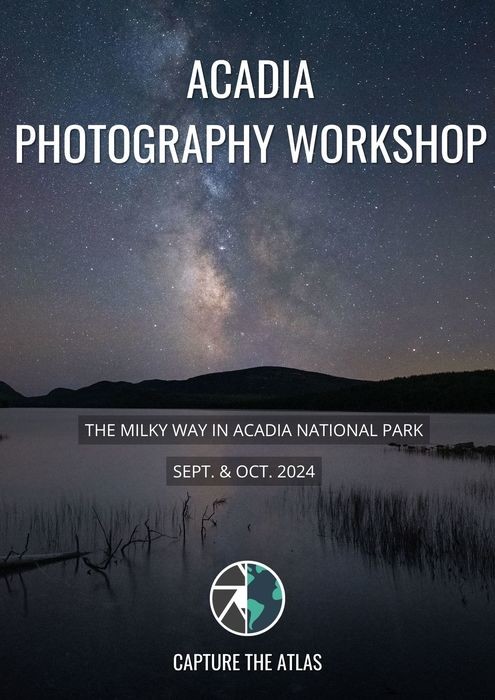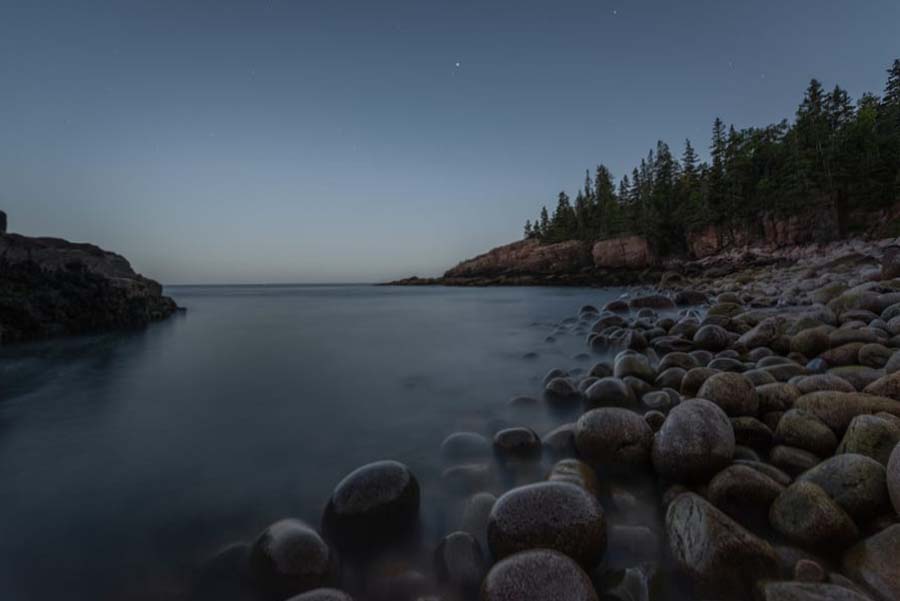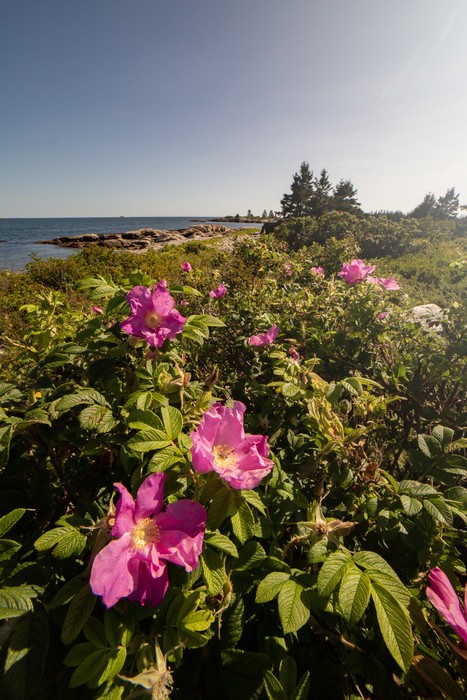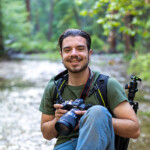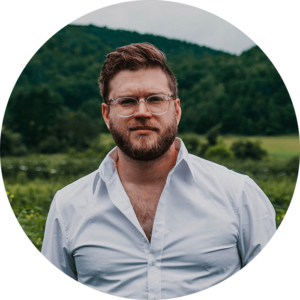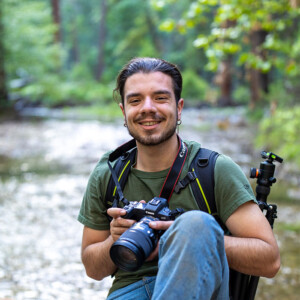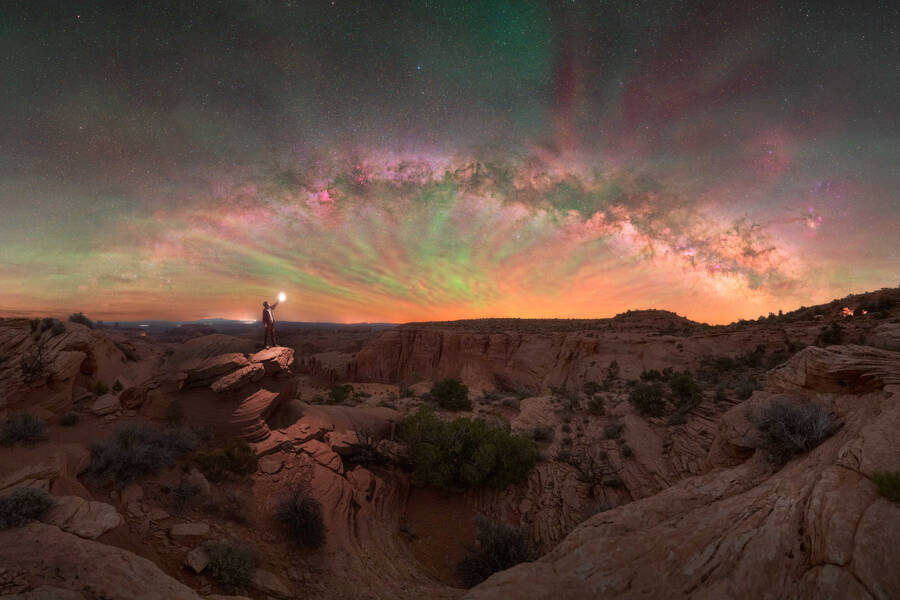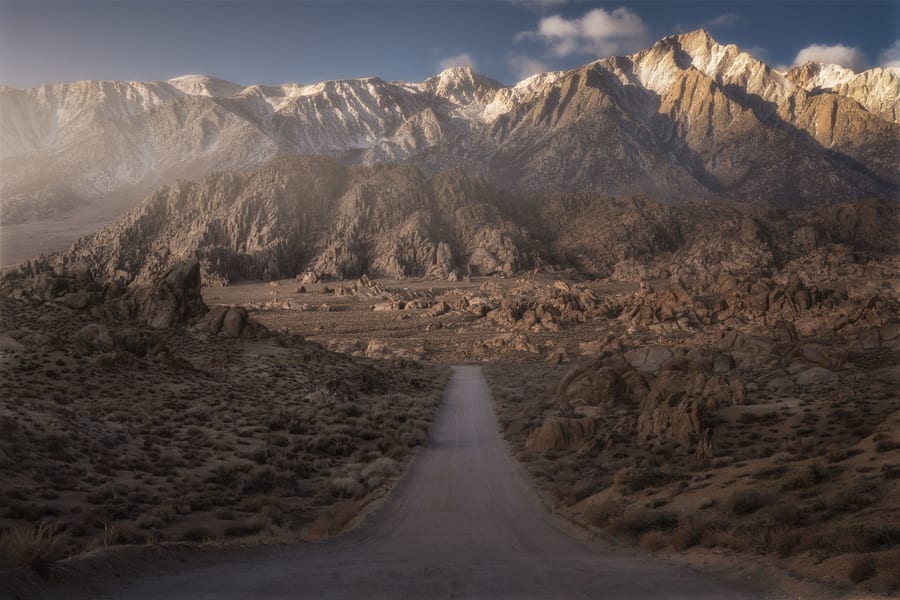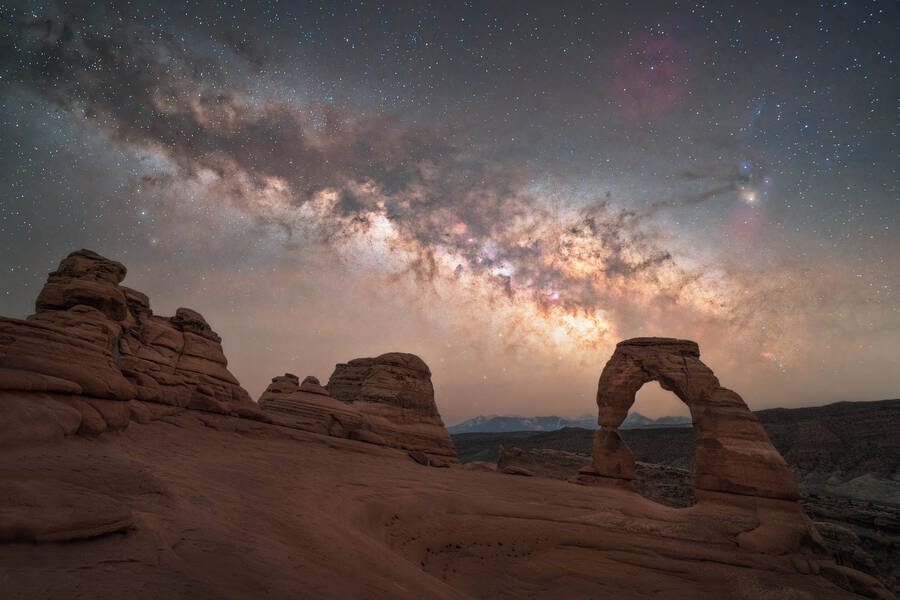2024 Maine Photography Workshop
The Milky Way in Acadia National Park
Join us for a Maine photography workshop in Acadia National Park where we’ll capture our Milky Way over some of the most spectacular landscapes in the Atlantic Coast of the United States.
We are running this tour during the months of September and October 2024, which is a beautiful time of year to explore Acadia’s scenic overlooks, photograph the coastline, and capture the Milky Way.

Overview
During this Maine photography workshop, we will focus specifically on landscapes and nightscapes shooting the Milky Way over the most photogenic landscapes Acadia National Park has to offer.
Also known as “The Crown Jewel of the North Atlantic Coast”, in Acadia National Park you’ll see and photograph some of the most beautiful rocky shorelines, coves, and scenic overlooks in Maine. Since we will be photographing towards the ocean, the light pollution is almost nonexistent in this particular area, making it ideal for astrophotography.
We will personally help you capture the best possible images during this Acadia National Park photography workshop. They will show you the best techniques to shoot the Milky Way, from the basics to the most advanced techniques like star-tracking, and they will also run post-processing sessions so you can bring your captured images to life.
While this workshop is primarily focused on Astro shooting at night, we will also photograph plenty of sunrises, sunsets, and daytime images during the trip, as the Milky Way visibility is early at night.
MAINE ASTROPHOTOGRAPHY TOURS HIGHLIGHTS
- Photo tours in September & October 2024
- Group size: 10 participants + 2 instructors.
- Main topics: Landscape & astrophotography.
- Main areas: Acadia National Park.
- Best time to capture the Milky Way from various scenic locations.
- Dedicated post-processing sessions.
- Accommodation included in Bar Harbor close to the best locations.
2024 Maine Astrophotography Workshop Itinerary
Our Maine astrophotography workshop itinerary is flexible, and it will be adjusted according to the weather conditions so you can make the most of this trip.
Our workshop will be during the best time of year to capture a south-facing Milky Way over Maine’s rocky coastline, when our galaxy is visible from around 8 PM to 10 PM.
Depending on the conditions, we might also have the opportunity to photograph the fall colors over some of the most iconic landscapes in Acadia NP.
DAY 1: Acadia Photography Workshop
Our Maine milky way photography workshop begins at the “Bar Harbor Motel” at 2:00 PM. This hotel is situated in an ideal spot at one of the shortest drives from the main shooting locations, and it’ll be our base camp during the entire trip. It also puts us in close proximity to the beautiful and quaint town of Bar Harbor, where there are plenty of amenities and restaurants.
After a meet and greet with the rest of the group and a welcome speech, we will prepare for our first sunset session at Jordan Pond.
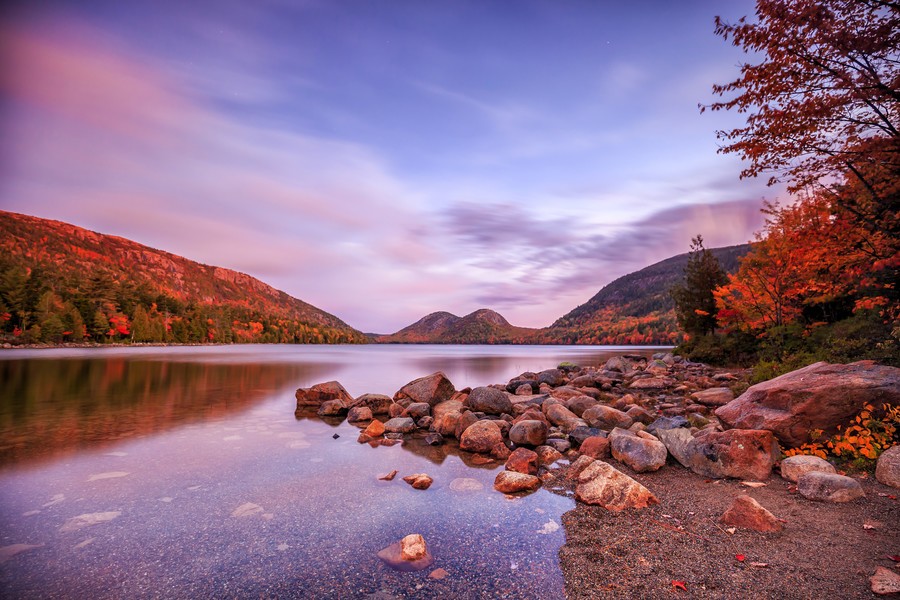
On a sunny Fall day, one could not ask for a more beautiful view and hike than this pond. It’s a very picturesque location, ideal for different types of landscape photography, especially long exposures. Depending on the fall colors, the slopes of the Acadia mountains can show multiple colors, like red, oranges, and yellows.
At night, we’ll visit our first night location at Eagle Lake, the largest freshwater lake in Acadia National Park. Here, we’ll capture the Milky Way aligned with the mountains and some interesting elements in the foreground, including reflections if we are lucky with the wind.
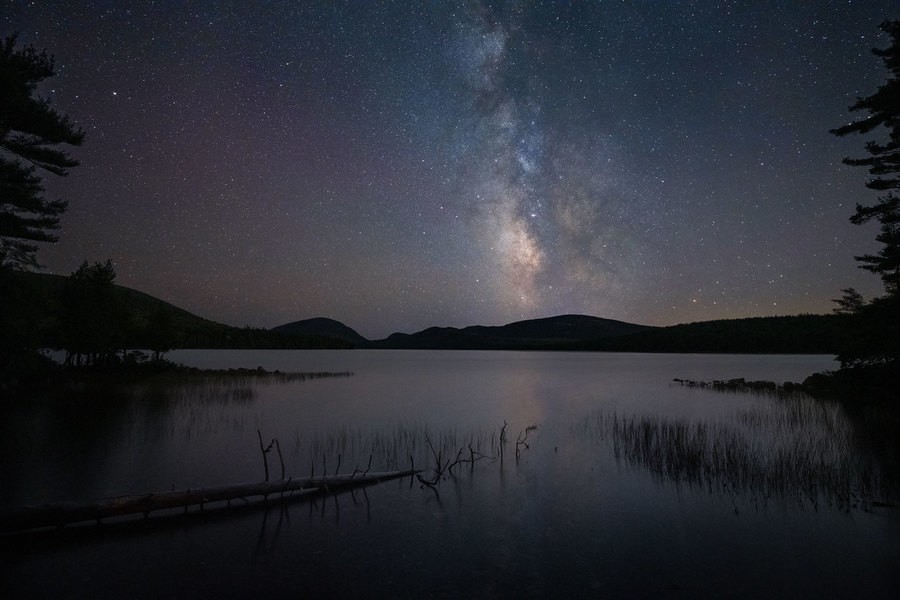
DAY 2: Maine Photography workshop
On the second day of our Acadia photography workshop, we will start with a sunrise shoot from Boulder Beach. Here, we will capture the ball-sized boulder rocks and ocean views with the iconic cliffs and pines of Acadia National Park in the background.
After that, we will get some grub, recharge some batteries, and rest up. In the afternoon, we will take you on an optional hike at Great Head Trail, which overlooks Sand Beach.
Later in the day, we will visit the Schoodic Peninsula, the only part of Acadia National Park on the mainland. This peninsula offers dramatic views west over Mount Desert Island. Depending on the weather and cloud cover, we will shoot the sunset from one of the many roadside pull-offs.
If the conditions allow for clear skies, this location offers fantastic photo opportunities to capture amazing Bortle 1 views over the ocean and an unobstructed view of the Milky Way at a beautiful and rocky coastal location.
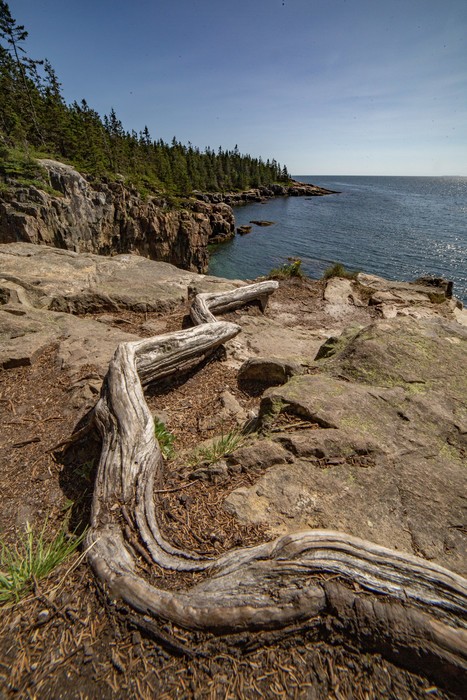
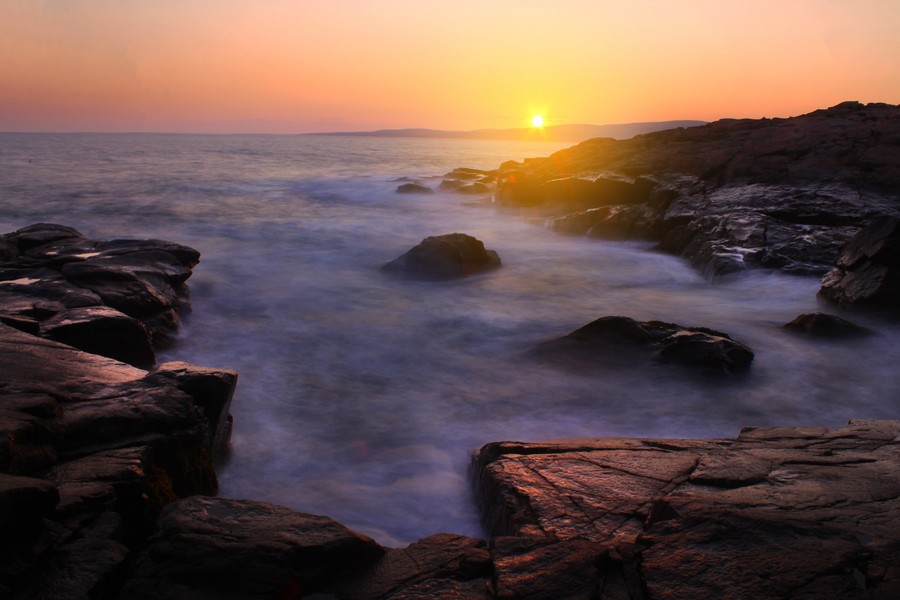
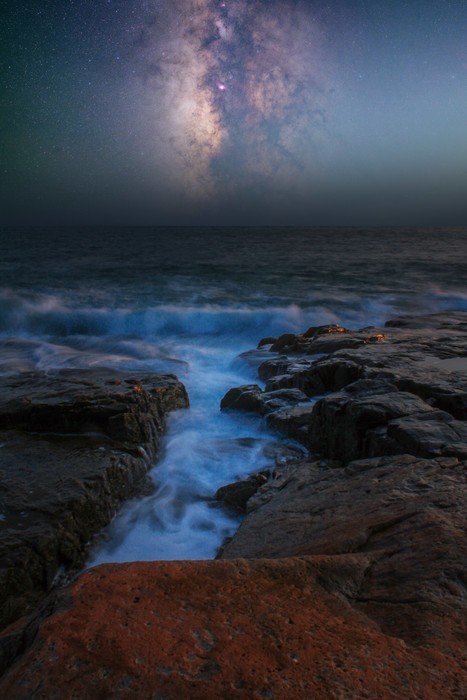
DAY 3: Maine Astrophotography Workshop
On day three, we will visit Thunder Hole for a beautiful sunrise and then walk along the impressive Ocean path. This is a flat trail that follows one of the most dramatic stretches of coastline in Maine. We will stop at the numerous vantage points from which you can photograph this visual feast.
We will scout out compositions from Monument Cove, where you’ll enjoy the views of some rugged granite walls and spectacular pillars shaped by centuries of waves and storms, to Otter Point, another popular spot with amazing views of the coastline.
After this morning session, we can get food, rest up and recharge. Later in the afternoon, we will have our first post-processing session, where we will work on the images that you have captured during the trip, with a special focus on your night images. We’ll show you the best techniques according to your skills, from the basics to some top-notch post-editing techniques.
In the evening and, after our editing session, we’ll visit Otter Point again to photograph this location at sunset till’ the Milky Way emerges over Acadia’s southern skies.
We’ll also visit another secluded location called Hunters Beach, which is a short half-mile flat walk to the beach. We will get there to capture the Milky Way band setting over the mountains.
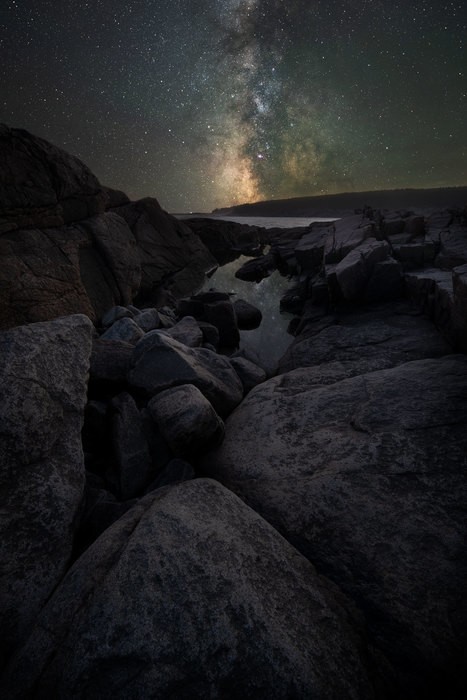
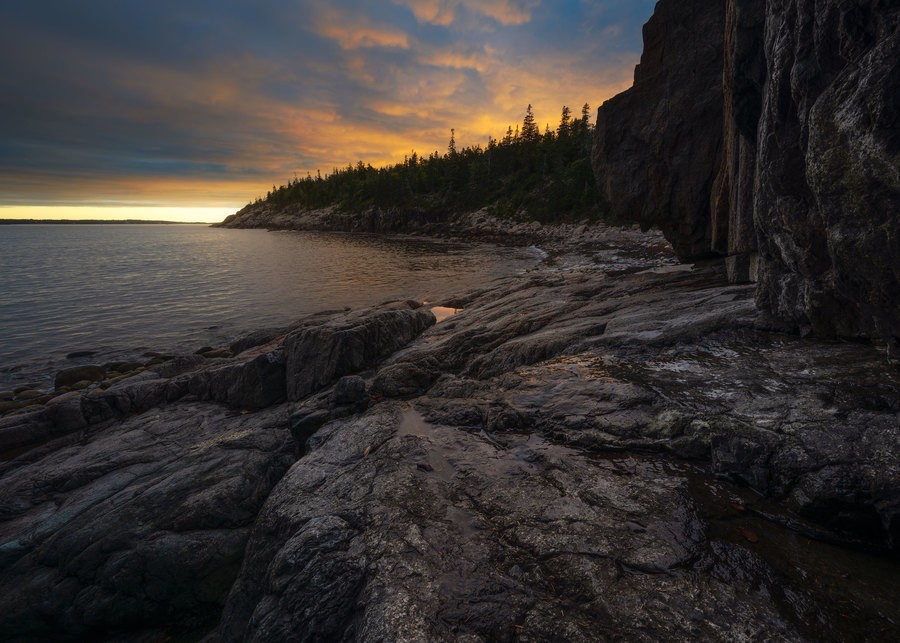
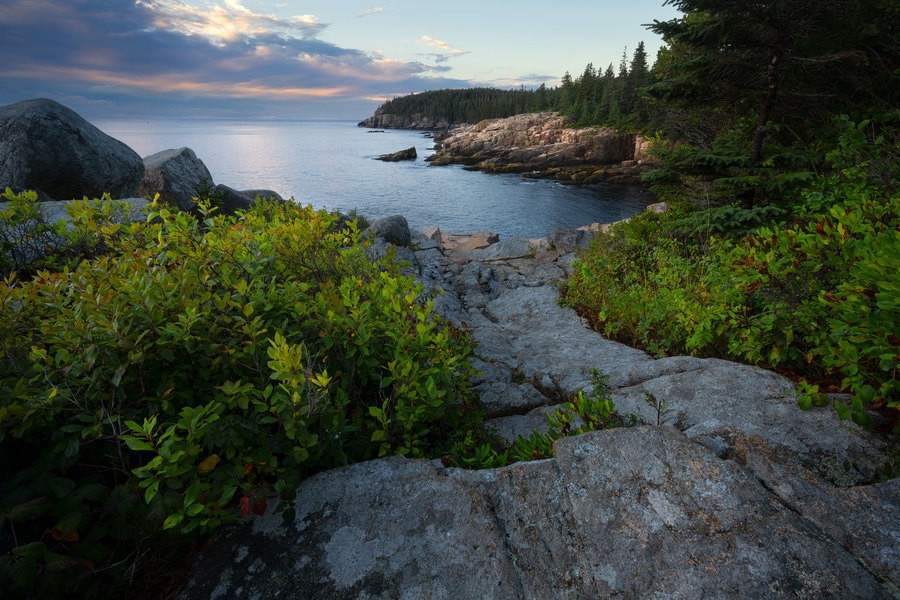
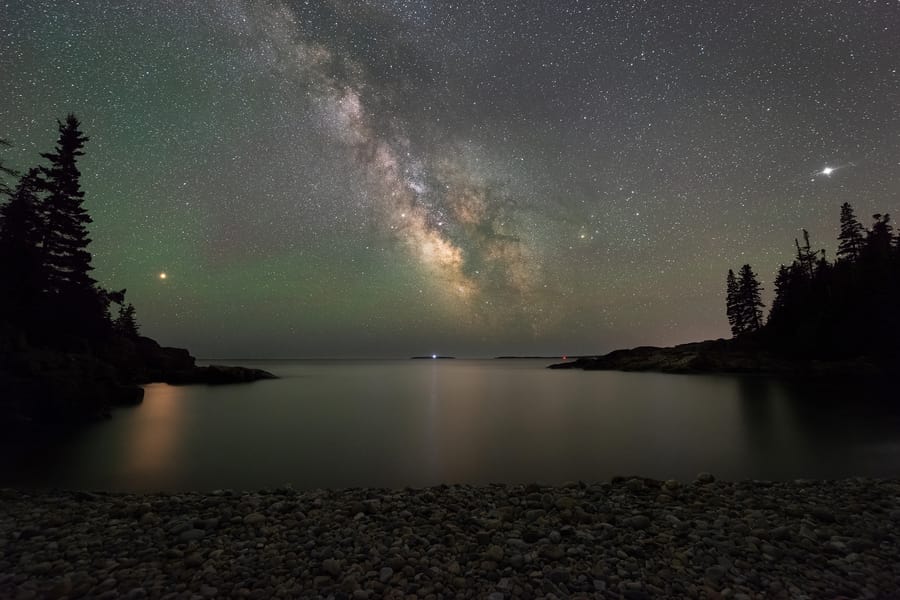
DAY 4: Acadia Astrophotography Workshop
In our last sunrise, we’ll revisit one of the main icons of Acadia NP at Jordan Pond. The light and conditions can create a drastic change in the scene, and we’ll look for new compositions at this gorgeous lake, this time under the morning light.
Later that afternoon, we’ll do a second post-processing session where we’ll continue with the editing instruction to help you with your images of the trip.
In the evening, we will head south to Bass Harbor Head Lighthouse. This lighthouse dates back to 1858, and it’s one of the most historical and photogenic spots in Acadia National Park. We’ll arrive in time to grab a good spot to enjoy a beautiful sunset as the sun sets over the horizon.
Depending on the clouds and night conditions throughout the trip, we’ll reserve the last night to do any of the night shooting plans that we couldn’t do in the previous days. If we are lucky with clear skies on the previous nights, we’ll do a new location, such as South Bubble Rock overlook.
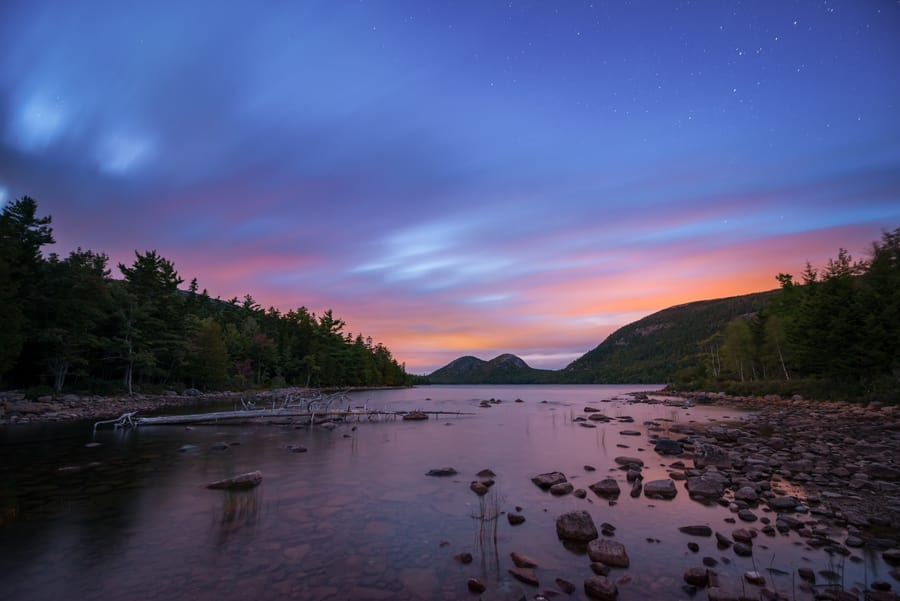
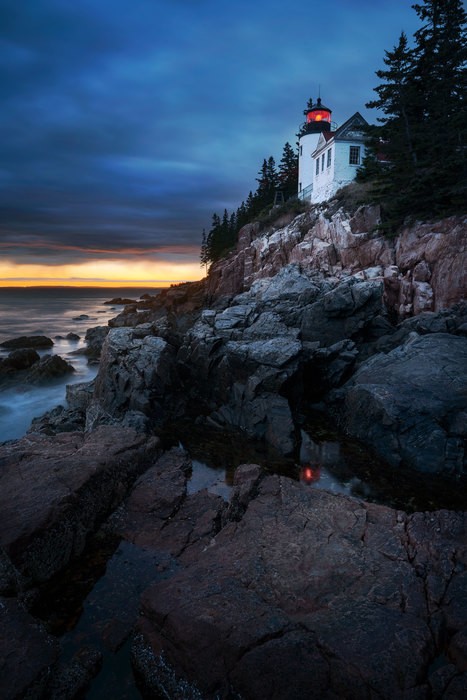
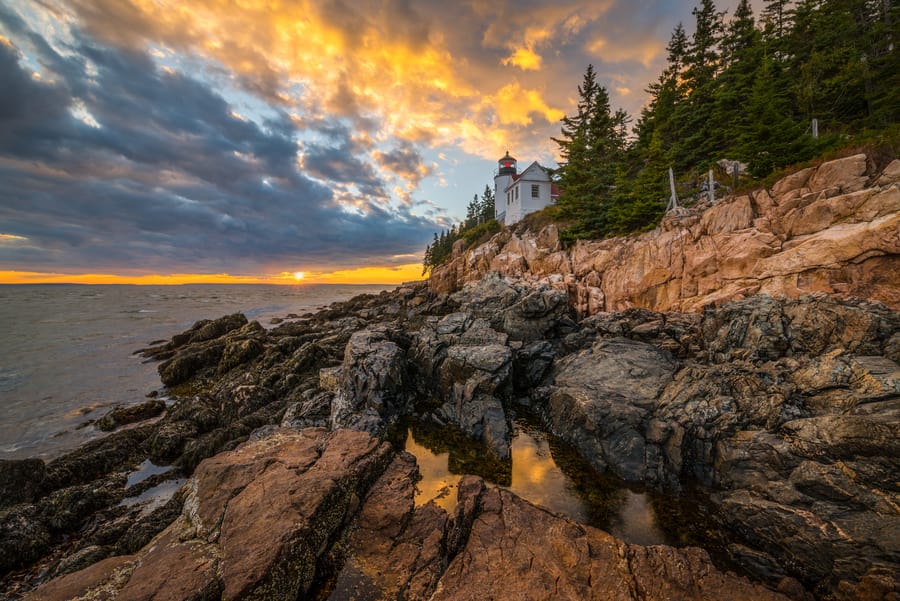
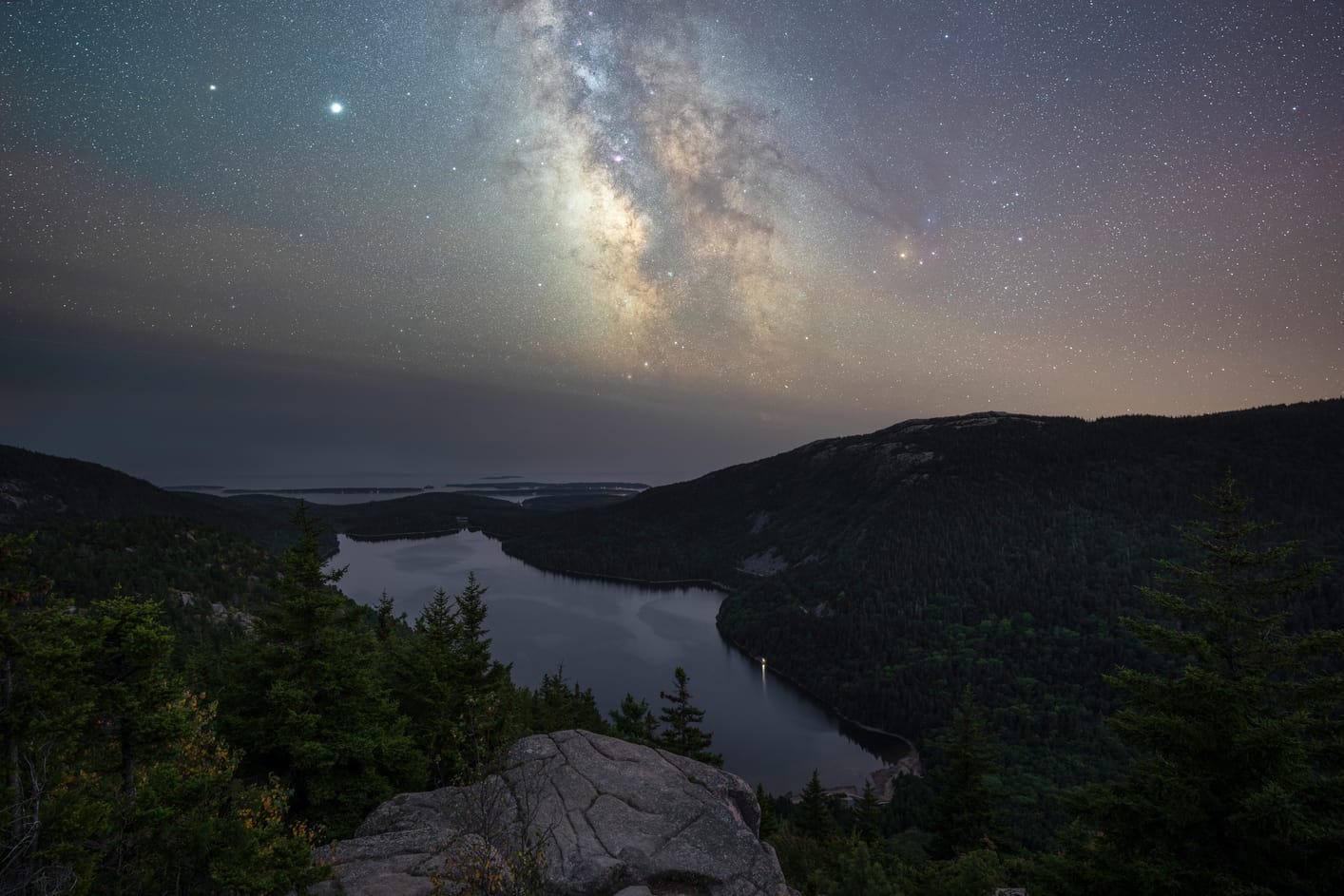
DAY 5: Acadia Astrophotography Workshop
For the final day, we’ll do a final sunrise shooting along the Acadia coastline to photograph the cliffs and waves under the beautiful morning light.
After a breakfast in our hotel, we will conclude our Maine photography workshop.
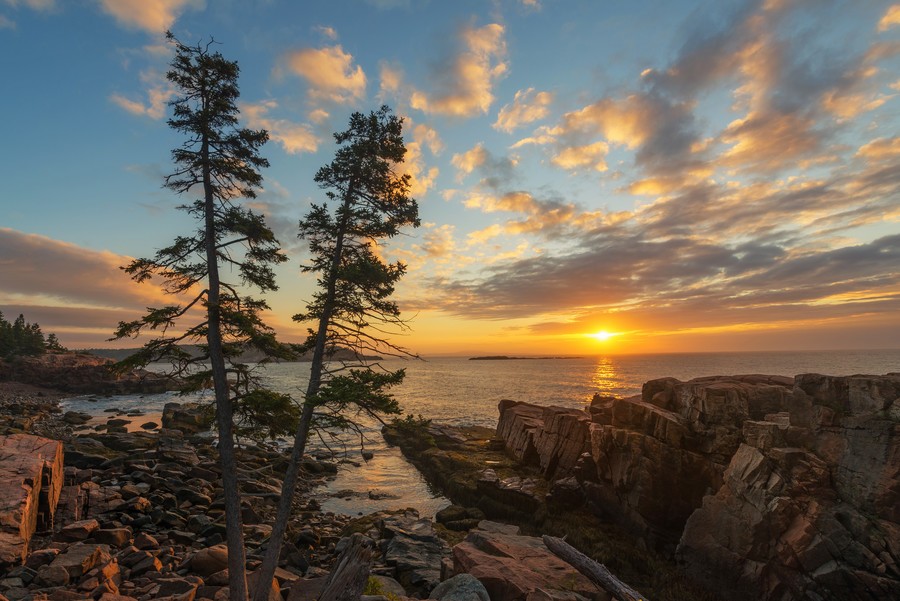
PRICE: USD 3,190
Deposit: USD 1,500
A $1,500 deposit is required to reserve your spot for this workshop. You can also pay in full at any time. The remaining balance is due 120 days before the start of the tour. If the remaining balance is not paid in full by the due date, you will lose your spot.
What does the price include?
INCLUDED
- Accommodation in shared double rooms with queen beds at the Bar Harbor Motel for 4 nights, including breakfast.
- 5 days of photo guide services by professional landscape and astrophotographers.
- Instruction in a small group of 10 participants with a 5:1 ratio (5 students per instructor).
- Dedicated post-processing astrophotography sessions.
*BONUSES
- Access to Dan Zafra’s full Capture the Milky Way Course (valued at $299)
- Access to the recorded material during the expedition.
- Access to David Aguilar’s Moody Landscapes course
NOT INCLUDED
- Transportation (including flights) to Acadia National Park.
- Transportation during the trip (we will arrange carpools when traveling to different locations).
- Private room – Extra $560 (*Subject to availability)
- Acadia National Parks entrance fee.
- Meals except breakfast.
- Health/travel insurance (We can help you purchase the best travel insurance according to your needs).
- Personal expenses, tips, and any other service not mentioned in the “INCLUDED” section.
*Capture the Atlas operates under a CUA (Commercial Use Authorization) with the National Park Service to run photography workshops in the park premises.
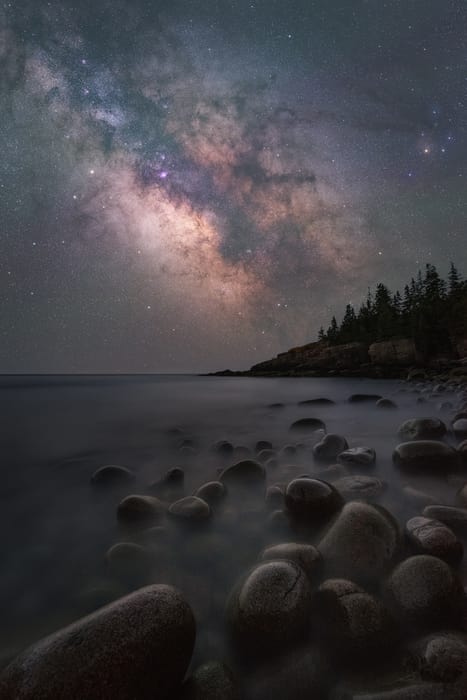
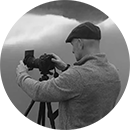
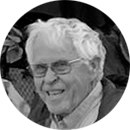
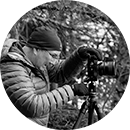
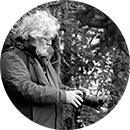
What will I learn during this Maine photo workshop?
This workshop is mainly focused on night and Milky Way photography. However, we will also photograph landscapes during the blue and golden hours, so you’ll have plenty of opportunities to learn about landscape astrophotography.
What you learn during the workshop will vary according to your goals and skills. Your instructors are professional photographers with extensive experience who will help you take your photography to the next level.
Photography basics
Some of the photography basics you can learn during the workshop are:
- Getting comfortable shooting different types of landscapes and photos in manual mode
- Adjusting the best camera settings in each situation
- Familiarizing yourself with the basics of night and Milky Way photography
- Enhancing your compositions with the best techniques
- Designing your own shooting workflow to be more effective in the field
- Photographing daytime and night panoramas
Advanced photography techniques
Some of the advanced photography techniques you can learn during the workshop are:
- Creating powerful compositions that tell a story and engage the viewer.
- Building a connection between your photography and your vision.
- Becoming a master of light: learn how to enhance it and keep it under control.
- Advanced night & Milky Way photography techniques like stacking and panoramas.
- Advanced bracketing and exposure blending to capture the best dynamic range.
- Using wide-angle distortion and focal length blending to create powerful images.
- Focus stacking to capture tack-sharp images with interesting foregrounds.
- Advanced Milky Way shooting using a star-tracker
Post-processing techniques
Some of the post-processing techniques that you can learn with are:
- How to start using Lightroom and Photoshop (all the basics).
- Preparing your images in Lightroom/Adobe Camera Raw to start on the right foot.
- Stitching panoramas using different software like Lightroom, Photoshop, or PTGui Pro.
- Stacking night images using Starry Landscape Stacker or Sequator.
- Reducing the noise in your night images using Topaz Denoise AI.
- All types of Blendings (exposure, focal length, focus, etc.).
- Light shaping and Dodge & Burn in your landscape images.
- Advanced Milky Way techniques like star reduction, structure, natural colors, etc.
Your instructors on this Acadia astrophoto tour
Dorian Sanders will be the tour leader of this workshop and will help you capture the night images that you’re envisioning.
He is a skilled astrophotographer who also has extensive experience, having led workshops focusing on how to use star trackers, how to compose scenes for the most dramatic images, and how to process using a plethora of digital platforms.
Being based in Vermont, Acadia National Park is practically in his backyard; having been there countless times over the past few years, he is very familiar with the main subjects that you’ll be photographing on this trip, and he can also help you with other topics like landscape photography. He will show you how to find great compositions and help you with your night photography, from the basics to advanced techniques like star-tracking.
James McGivern will be the co-leader of this workshop. He is a proficient astrophotographer and an expert in capturing all types of images, from wide-field nightscapes to deep-sky imaging.
James is based in Southern California and has explored and photographed some of the best places for Astro in the US, including Death Valley, Joshua Tree, etc.
He has taught night photography workshops at Sky’s the Limit Observatory and has volunteered for several outreach programs at the observatory.
James will be able to help you with your night photography from the basics to advanced techniques like star-tracking.
What to bring to an Acadia photo tour
Below, you can find a summary of things you might need:
Photography Gear
- A mirrorless or DSLR camera.
- A sturdy tripod and a remote shutter.
- A wide-angle lens, such as 14-24 mm.
- A medium zoom lens, such as 24-70 mm.
- A telephoto lens, like a 70-200 mm lens.
- A camera bag to transport all your equipment.
- A headlamp for the night shoots.
- A lens warmer to prevent humidity from fogging up your lens.
- Glow-in-the-dark tape for your tripod.
- A laptop for the post-processing sessions
Some optional items if you are focused on advanced MW photography are:
- A star-tracker.
- A laser for doing the polar alignment.
*While zoom lenses are acceptable for this workshop, prime lenses are recommended for Milky Way photography. Some of the best lenses in this range are:
-20 mm f/1.8, 24 mm f/1.4, 28 mm f/1.4, 35 mm f/1.8, 40 mm f/1.4, 50 mm f/1.8
You can get them either from your camera brand or from third-party manufacturers like Rokinon or Sigma.
*This Maine astrophotography workshop focuses on Milky Way nightscapes and not on deep-sky imaging. However, you can bring a telephoto/telescope and take your own deep-sky photos if you like.
You may be interested in this guide, where you can dive deeper into photography equipment for traveling.
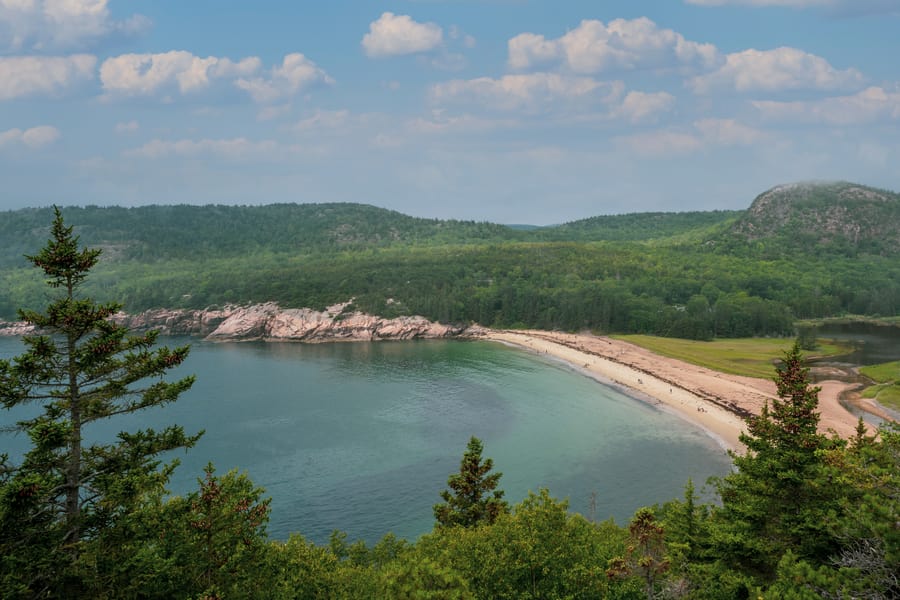
Clothing
Even though the sun makes temperatures warm during the day, nights can be chilly after sunset in late September, with temperatures around the 50s in the evening and night.
For this reason, we recommend bringing the following clothing:
- A system of layers to wear at night (base layer, windproof layer).
- A good pair of breathable boots (to protect your feet and ankles while hiking over rocks and uneven terrain).
- A light hat and gloves for the night photography sessions in case it gets cold.
Documentation
If you are traveling from outside the US, you may need a specific travel visa or an electronic travel authorization (“ESTA”) depending on your country of origin. We can help you with this process.
Accommodation
During this Acadia astrophotography workshop, we will be staying in shared rooms with private bathrooms at the Bar Harbor Motel, one of the top-rated accommodations close to the National Park.
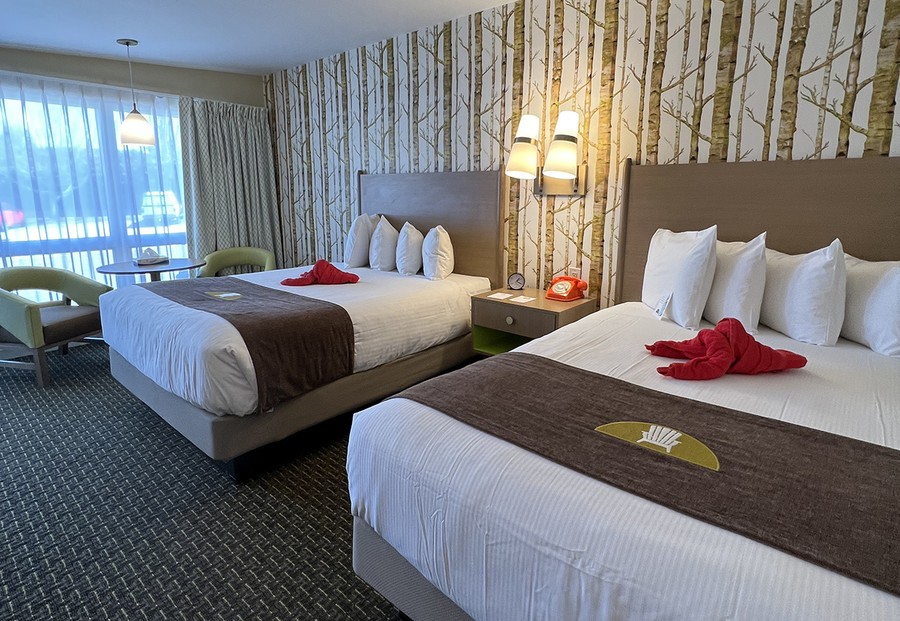
Hiking
This is not a hiking photo tour, however, there are a few walks and hikes to get to and from the photography locations that you should consider.
Also, there are longer and tougher hikes that we can offer as optional during the day if there are enough participants interested such as the Great Head Trail or the Beehive Trail.
Hike | Elevation Gain | Distance (Roundtrip) | Estimated Duration (Roundtrip) | Path |
|---|---|---|---|---|
Bass Harbor Lighthouse | 40 ft. | 0.5 miles | 0.5 hours | 30-40 feet of stairs straight off the parking lot. |
Otter Point | 40 ft. | 0.5 miles | 0.5 hours | Flat walk from parking through a path with roots and small rocks onto massive rock flats. |
Monument Cove | 20 ft. | 1 mile | 1 hour | Flat walk up a path to the overlook where there will be roots and other possible trip hazards. |
Bubble Beach | 20 ft. | 0.5 miles | 0.5 hours | Moderate difficulty hike from parking lot until you descend onto the rocks which are round in shape and must be very cautious traversing. |
Eagle Lake | 20 ft. | 0.5 mile | 0.5 hours | Wide pebble trail flat walk around the lake. |
Thunder Hole | 20 ft. | 0.5 miles | 0.5 hours | Flat walk from parking. |
Little Hunters Beach | 20 ft. | 0.5 miles | 0.5 hours | Short walk down to the rocky beach from the parking lot. |
Hunters Beach | 20 ft. | 0.2 miles | 0.5 hours | Short walk down a path through the woods from the parking area. |
Bubble Rock | 686 ft. | 1.5 miles | 2 hours | Great hike and views, progressive incline, big rocks, roots, puddles. |
Great Head Trail (Optional) | 70 ft. | 2 miles | 2 hours | 2mi trail with scramble, roots, rocks, puddles & great views. |
Beehive Trail (Optional) | 502 ft. | 1.5 miles | 3 hours | Toughest hike, open wall climbing and scrambling. |
We recommend being in good physical shape to enjoy this experience |
||||
What expenses should you consider for this Acadia Photography Workshop?
Flights
There are different airports within a relatively short drive from Acadia. The nearest airport to Acadia National Park is Bar Harbor Airport (BHB), which is 8.8 miles away. Other nearby airports include Bangor (BGR) (42.6 miles), Rockland (RKD) (46.8 miles), and Portland (PWM) (114.3 miles).
Airline ticket prices will depend on the airport you are flying from. We recommend reading this article if you want to find the best flights from your current location.
Transportation
Transportation will not be included, and all the driving will be on paved, easy roads, so any type of vehicle is fine for this Maine photo workshop.
When traveling to different locations on the tour, we will try to carpool as often as possible. Some parking areas are small, and we would like to minimize our impact on the land and ecosystem as much as possible.
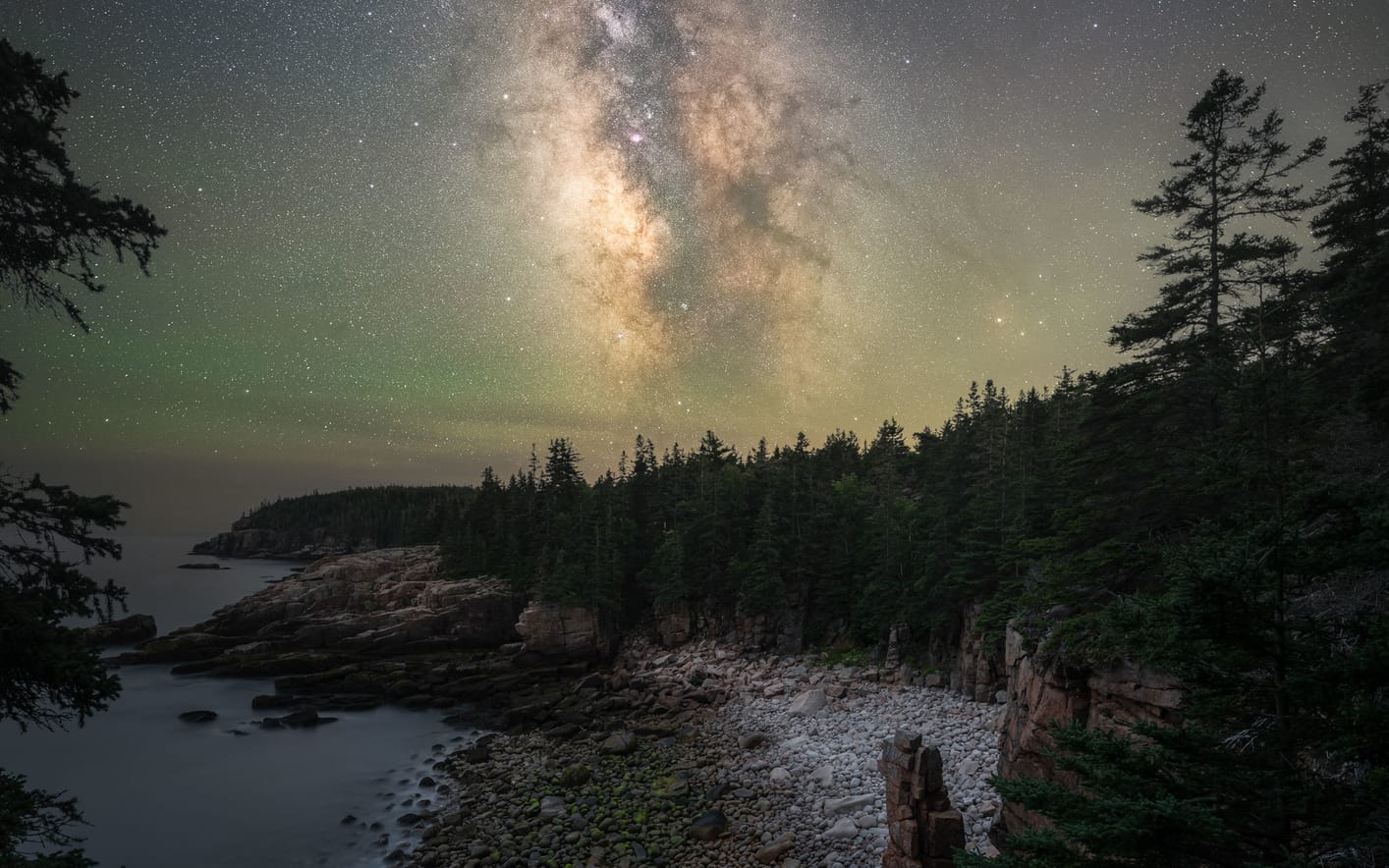
MEALS
Meals are not included, except for breakfast in our hotel.
Bar Harbor has grocery stores where you can buy food, drinks, and snacks. We recommend buying some groceries and snacks before the start of the tour, since our schedule will completely depend on the shooting conditions, and some days, we might not make it to any of the local restaurants for lunch/dinner.
Entrance Fee
The Acadia Narional Park pass cost $30 per vehicle and is valid for a week. You can get your pass online or in person at the kiosk before entering the park.
If you plan to visit more national parks within the following year after the workshop, we recommend getting the “America the Beautiful” annual pass, which gives you unlimited access to all national parks and some state parks in the country for only $80. You can get it online here.
What makes this Maine astrophoto tour unique?
Immersive
Our astrophotography workshops are completely centered on photography: finding the best moments to shoot, running dedicated post-processing sessions, and creating an intensive experience that is conducive to learning and taking the best Milky Way images.
Intimate
Our workshops are limited to small groups with a ratio of no more than five students per instructor. This is also an important factor for providing the attentive instruction you need during the tour.
Exclusive
You’ll learn how to make the most of your camera gear to capture Milky Way images as well as the most effective post-processing techniques to bring your images to life. The instruction and the setting in an exclusive group of astrophotographers make this workshop unique and distinct from standard night photography tours.
Dedicated
We will discuss your goals before the tour so we can create a dedicated instruction plan for you. It doesn’t matter your age or skills; we will design your plan and provide you with materials before, during, and after the workshop so the learning process is not limited to just the tour.
Proven
We have spent years designing national and international photo tours with successful results, helping photographers with their Milky Way & Northern Lights photography. Dan’s online courses have also helped more than 400 photographers over the last few years.
Unforgettable
Beyond the photography, our photography workshops help build strong bonds that last forever. After our trip, you’ll feel like you have been with a group of friends rather than on a standard tour. We are thankful to have plenty of repeat clients who keep traveling and learning with us.
Frequent questions about our astro workshops
WHAT LEVEL SHOULD I BE TO ATTEND THIS PHOTO TOUR TO ACADIA NATIONAL PARK?
Whether you are experienced or just starting out in Milky Way photography, you are welcome, and I am convinced that you will progress quickly. Together, we will send you home with a thorough knowledge of many photography areas, from the basics to multiple advanced techniques.
Once you sign up for the workshop, we will discuss your skills and goals for this tour, and I’ll organize a teaching plan so you can make the most of this experience.
WHAT PHYSICAL SHAPE DO I NEED TO BE IN?
Generally, we won’t do any long or strenuous hikes, since most locations are a relatively short walk from the parking lot. The maximum distance/elevation hike during the trip will be no longer than 1.5 miles and with no more than 500 ft elevation gain. Some hikes will be optional and you’ll have the opportunity to choose between the hike or a post-processing lesson.
Also, many of the shoots will be done at night between 8PM and 11PM, with sunrise sessions scheduled in the mornings. For this reason, we recommend having good energy levels and being in good physical shape to enjoy this experience.
AM I TOO YOUNG/OLD FOR THIS ACADIA PHOTO TOUR?
There is no age limit. This trip is perfect for anyone over 18 years old who wants to photograph Acadia with us.
CAN MY NON-PHOTOGRAPHER COMPANION JOIN US ON THE TOUR?
Non-photographer companions are welcome to join the tour, and they need to book a spot under the same price and conditions as any other participant. (We don’t allow non-participant companions tagging along with the group). We have had plenty of non-photographer companions over the years and all of them enjoyed an amazing experience. As long as they enjoy nature, beautiful landscapes, and are a bit patient with the schedules of a photo tour, joining the trip can be a great experience regardless of the shooting.
DO I NEED A STAR-TRACKER?
You don’t need a star-tracker, but you can bring one to the workshop if you have a good foundation in Milky Way photography and you’d like to focus on some advanced shooting.
Our Happy Students!
I’ve had the opportunity to work with and help countless photographers over the last few years. Sharing and teaching photography is my passion, and I love doing this both online and in the field.



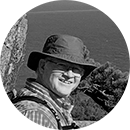

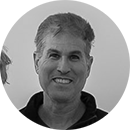

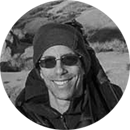
TERMS AND CONDITIONS
This tour is governed by these Terms and Conditions.
The Maine coastline is the most impressive place where I have photographed the Milky Way on the US East Coast. Rugged coastline, steep cliffs, wild beaches, and endless pines create a dreamy scenery to photograph our home galaxy. The seascapes also offer majestic views during the golden moments of light like the sunrise or sunset.
Acadia is known as “The Crown Jewel of the North Atlantic Coast” for good reason, and on this trip, you’ll have the opportunity to capture it with your eyes and camera forever.
Let’s capture the Milky Way!
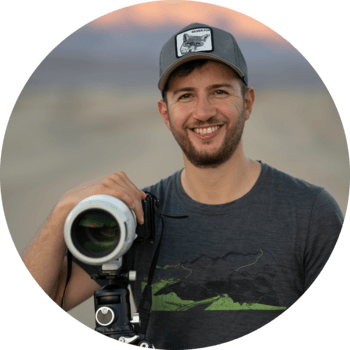
DAN ZAFRA
